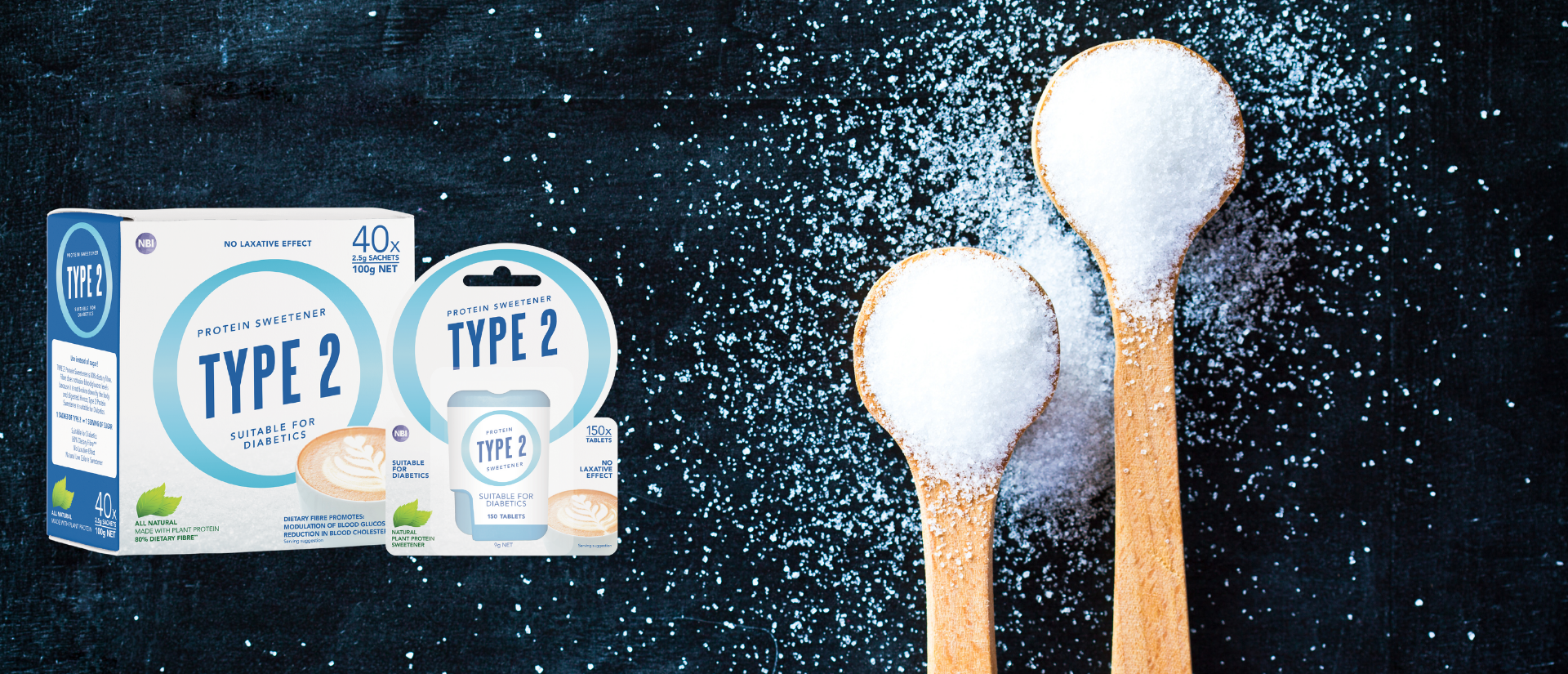
When consumers are looking to purchase products, what sugar-related factors influence their purchase decision? Is it the product taste? Is it the amount of calories in a product? Or perhaps they’re looking for a complete sugar replacement?
Nepbio (NBI) – Neptune Bio-Innovations is a wholly-owned Australian business. Nepbio (NBI) develops innovative consumer health and wellness products to help Australians live a healthy lifestyle. Nepbio (NBI)'s range of healthy food, nutrition, wellness and consumer health products help to reduce the risk of diabetes, hypertension, dehydration and more.
In this blog, we’ll cover changing consumer behaviours in relation to sugar, factors that influence consumers’ sugar purchase decisions and a natural sweetener that you can use when cooking or baking.
Changing Consumer Behaviour - Sugar
In 2015, the World Health Organization (WHO) released guidelines on sugar intake for adults and children. Their recommendation was to reduce the intake of free sugars1. Free sugars include monosaccharides and disaccharides which are added to foods and beverages, along with sugars which are naturally present in syrups, honey and fruit juices1. In both adults and children, they recommended reducing free sugars intake to less than 10% of total energy intake1.
This showed consumers that it wasn’t just those on diets who had to change their sugar consumption behaviour. As everyone was asked to reduce their intake of free sugars, many consumers began to search for alternatives. In fact, research has shown that almost two thirds of global consumers were concerned about their sugar intake2.
Influence of Sugar on Purchase Behaviour
Based on a survey of 5,000 respondents from different areas around the world, when consumers were given the option to buy sugar-free or low-sugar, they were more likely to buy the low-sugar option (except in relation to soft drinks)3. The reasons that consumers would choose a low-sugar or a complete sugar replacement option was because they wanted to maintain or lose weight3. They were also concerned about diabetes and their health3.
Another study found that consumers preferred natural sweeteners in relation to sugar levels in products4. 57% of the respondents said that they were trying to cut their sugar intake4. People were after a healthy diet with better weight management, while trying to avoid tooth decay and diabetes4.
A Natural, Low-Calorie Sweetener
So what if there was a natural, low sugar option available that tasted as sweet as sugar? It would meet consumers’ criteria as detailed above and hence be an absolute gamechanger in the market for both food manufacturers along with everyday consumers for their cooking, baking and drinking needs.
If you haven’t heard, there is a product available exactly like this and it’s called Type 2 Protein Sweetener.
Type 2 Protein Sweetener is a low-calorie sugar alternative which is suitable for diabetics. Sweeteners can be nutritive or non-nutritive, and Type 2 Protein Sweetener is a non-nutritive sweetener, so it is low in calories. Non-nutritive sweeteners have made the change from being a specialised niche product to a mainstream product.
Type 2 Protein Sweetener is also a natural sweetener as it is composed of naturally occurring plant extracts. This includes stevia which is a carbohydrate and thaumatin which is a protein.
In relation to the taste, by combining both stevia and thaumatin, Type 2 Protein Sweetener has a taste that is close to sugar. Stevia leaves a sweet and bitter aftertaste whereas the thaumatin leaves a sweetness which lingers.
A low calorie, natural sweetener is what consumers are after. If you’re looking for a natural low sugar, then try Type 2 Protein Sweetener which is available online at www.nepbio.com.
About Nepbio (NBI)
Nepbio (NBI) is a global leader in scientific research and development of dietary supplements, medicines and food products for a healthier lifestyle. We aim to keep chronic diseases such as obesity, hypertension and diabetes at bay simply by advocating healthy dietary habits using healthy food. We have a wide range of innovative health & wellness products:
BIOLyte is an Oral Rehydration Salt with Prebiotic and Zinc. BIOLyte helps you recover faster by reducing diarrhoea & vomiting and replenishing lost electrolytes for fast rehydration. #BIOLyte, #electrolytedrink, #ORSdrink, #prebioticpowder, #rehydratemate
URICIL is a Urinary Tract Infection (UTI) over the counter medicine for cystitis. URICIL helps to relieve symptoms and reduce the occurrence of medically diagnosed cystitis. #URICIL, #cystitismedicine, #UTI, #cystitis
Heart SALT is a healthy, low-sodium salt that contains 56% less sodium than regular salt. Heart SALT helps reduce the risk of hypertension while having a great salt taste. #salt_hypertension, #heartsalt, #lowsodiumsalt, #healthysalt, #tablesalt
Type 2 Protein Sweetener is a natural, low-calorie sweetener suitable for diabetics and pre-diabetics, including those with a family history of diabetes. Type 2 Protein Sweetener gets you to enjoy the sweetness in your tastebuds without increasing your blood sugar levels. #sugar_diabetes, #lowcaloriesugar, #steviaalternative, #type2sweetener, #healthysugar
La MAYO is a healthy, low-fat mayonnaise suitable for vegans. La MAYO is gluten-free, egg-free, dairy-free and tasty mayonnaise. While one serving (1 tablespoon) of mayonnaise can amount to 60 calories and 5g of fat, Nepbio (NBI)’s La MAYO contains only 13 calories and 0g of fat per serve. #healthymayo, #lowcaloriemayo, #lowfatmayo, #veganmayo #lamayo
Klinrub is the best hand sanitiser that kills germs without the need for water. Klinrub is a fast-acting antiseptic hand rub that is non-sticky and paraben-free. It is an affordable hand sanitiser suitable for use in medical and health services. #handsanitiser #klinrub #besthandsanitiser #sanitiser #staysafe